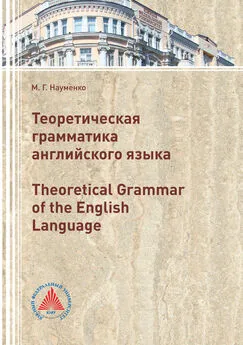Michael Ondaatje - The English Patient
- Название:The English Patient
- Автор:
- Жанр:
- Издательство:неизвестно
- Год:неизвестен
- ISBN:нет данных
- Рейтинг:
- Избранное:Добавить в избранное
-
Отзывы:
-
Ваша оценка:
Michael Ondaatje - The English Patient краткое содержание
The English Patient - читать онлайн бесплатно полную версию (весь текст целиком)
Интервал:
Закладка:
He was held by the wrist again and his hand sunk into a box of cartridges. In another box to the right were more shells, seven-millimetre shells this time. Then others.
When he was a child he had grown up with an aunt, and on the grass of her lawn she had scattered a deck of cards face down and taught him the game of Pelmanism. Each player allowed to turn up two cards and, eventually, through memory pairing them off. This had been in another landscape, of trout streams, birdcalls that he could recognize from a halting fragment. A fully named world. Now, with his face blindfolded in a mask of grass fibres, he picked up a shell and moved with his carriers, guiding them towards a gun, inserted the bullet, bolted it, and holding it up in the air fired. The noise cracking crazily down the canyon walls. “ For echo is the soul of the voice exciting itself in hollow places.” A man thought to be sullen and mad had written that sentence down in an English hospital. And he, now in this desert, was sane, with clear thought, picking up the cards, bringing them together with ease, his grin flung out to his aunt, and firing each successful combination into the air, and gradually the unseen men around him replied to each rifle shot with a cheer. He would turn to face one direction, then move back to the Breda this time on his strange human palanquin, followed by a man with a knife who carved a parallel code on shell box and gun stock. He thrived on it— the movement and the cheering after the solitude. This was payment with his skill for the men who had saved him for such a purpose.
There are villages he will travel into with them where there are no women. His knowledge is passed like a counter of usefulness from tribe to tribe. Tribes representing eight thousand individuals. He enters specific customs and specific music. Mostly blindfolded he hears the water-drawing songs of the Mzina tribe with their exultations, dahhiya dances, pipe-flutes which are used for carrying messages in times of emergency, the makruna double pipe (one pipe constantly sounding a drone). Then into the territory of five-stringed lyres. A village or oasis of preludes and interludes. Hand-clapping. Antiphonal dance.
He is given sight only after dusk, when he can witness his captors and saviours. Now he knows where he is. For some he draws maps that go beyond their own boundaries and for other tribes too he explains the mechanics of guns. The musicians sit across the fire from him. The simsimiya lyre notes flung away by a gust of breeze. Or the notes shift towards him over the flames. There is a boy dancing, who in this light is the most desirable thing he has seen. His thin shoulders white as papyrus, light from the fire reflecting sweat on his stomach, nakedness glimpsed through openings in the blue linen he wears as a lure from neck to ankle, revealing himself as a line of brown lightning.
The night desert surrounds them, traversed by a loose order of storms and caravans. There are always secrets and dangers around him, as when blind he moved his hand and cut himself on a double-edged razor in the sand. At times he doesn’t know if these are dreams, the cut so clean it leaves no pain, and he must wipe the blood on his skull (his face still untouchable) to signal the wound to his captors. This village of no women he has been brought into in complete silence, or the whole month when he did not see the moon. Was this invented? Dreamed by him while wrapped in oil and felt and darkness?
They had passed wells where water was cursed. In some open spaces there were hidden towns, and he waited while they dug through sand into the buried rooms or waited while they dug into nests of water. And the pure beauty of an innocent dancing boy, like sound from a boy chorister, which he remembered as the purest of sounds, the clearest river water, the most transparent depth of the sea. Here in the desert, which had been an old sea where nothing was strapped down or permanent, everything drifted—like the shift of linen across the boy as if he were embracing or freeing himself from an ocean or his own blue afterbirth. A boy arousing himself, his genitals against the colour of fire.
Then the fire is sanded over, its smoke withering around them. The fall of musical instruments like a pulse or rain. The boy puts his arm across, through the lost fire, to silence the pipe-flutes. There is no boy, there are no footsteps when he leaves. Just the borrowed rags. One of the men crawls forward and collects the semen which has fallen on the sand. He brings it over to the white translator of guns and passes it into his hands. In the desert you celebrate nothing but water.
She stands over the sink, gripping it, looking at the stucco wall. She has removed all mirrors and stacked them away in an empty room. She grips the sink and moves her head from side to side, releasing a movement of shadow. She wets her hands and combs water into her hair till it is completely wet. This cools her and she likes it when she goes outside and the breezes hit her, erasing the thunder.
II
In Near Ruins
THE MAN WITH BANDAGED HANDS had been in the military hospital in Rome for more than four months when by accident he heard about the burned patient and the nurse, heard her name. He turned from the doorway and walked back into the clutch of doctors he had just passed, to discover where she was. He had been recuperating there for a long time, and they knew him as an evasive man. But now he spoke to them, asking about the name, and startled them. During all that time he had never spoken, communicating by signals and grimaces, now and then a grin. He had revealed nothing, not even his name, just wrote out his serial number, which showed he was with the Allies.
His status had been double-checked, and confirmed in messages from London. There was the cluster of known scars on him. So the doctors had come back to him, nodded at the bandages on him. A celebrity, after all, wanting silence. A war hero.
That was how he felt safest. Revealing nothing. Whether they came at him with tenderness or subterfuge or knives. For more than four months he had not said a word. He was a large animal in their presence, in near ruins when he was brought in and given regular doses of morphine for the pain in his hands. He would sit in an armchair in the darkness, watching the tide of movement among patients and nurses in and out of the wards and stockrooms.
But now, walking past the group of doctors in the hall, he heard the woman’s name, and he slowed his pace and turned and came up to them and asked specifically which hospital she was working in. They told him that it was in an old nunnery, taken over by the Germans, then converted into a hospital after the Allies had laid siege to it. In the hills north of Florence. Most of it torn apart by bombing. Unsafe. It had been just a temporary field hospital. But the nurse and the patient had refused to leave.
Why didn’t you force the two of them down?
She claimed he was too ill to be moved. We could have brought him out safely, of course, but nowadays there is no time to argue. She was in rough shape herself.
Is she injured?
No. Partial shell shock probably. She should have been sent home. The trouble is, the war here is over. You cannot make anyone do anything anymore. Patients are walking out of hospitals. Troops are going AWOL before they get sent back home.
Which villa? he asked.
It’s one they say has a ghost in the garden. San Girolamo. Well, she’s got her own ghost, a burned patient. There is a face, but it is unrecognizable. The nerves all gone. You can pass a match across his face and there is no expression. The face is asleep.
Who is he? he asked.
We don’t know his name.
He won’t talk?
The clutch of doctors laughed. No, he talks, he talks all the time, he just doesn’t know who he is.
Where did he come from?
The Bedouin brought him into Siwa Oasis. Then he was in Pisa for a while, then … One of the Arabs is probably wearing his name tag. He will probably sell it and we’ll get it one day, or perhaps they will never sell it. These are great charms. All pilots who fall into the desert—none of them come back with identification. Now he’s holed up in a Tuscan villa and the girl won’t leave him. Simply refuses. The Allies housed a hundred patients there. Before that the Germans held it with a small army, their last stronghold. Some rooms are painted, each room has a different season. Outside the villa is a gorge. All this is about twenty miles from Florence, in the hills. You will need a pass, of course. We can probably get someone to drive you up. It is still terrible out there. Dead cattle. Horses shot dead, half eaten. People hanging upside down from bridges. The last vices of war. Completely unsafe. The sappers haven’t gone in there yet to clear it. The Germans retreated burying and installing mines as they went. A terrible place for a hospital. The smell of the dead is the worst. We need a good snowfall to clean up this country. We need ravens.
Thank you.
He walked out of the hospital into the sun, into open air for the first time in months, out of the green-lit rooms that lay like glass in his mind. He stood there breathing everything in, the hurry of everyone. First, he thought, I need shoes with rubber on the bottom. I need gelato .
He found it difficult to fall asleep on the train, shaking from side to side. The others in the compartment smoking. His temple banging against the window frame. Everyone was in dark clothes, and the carriage seemed to be on fire with all the lit cigarettes. He noticed that whenever the train passed a cemetery the travellers around him crossed themselves. She’s in rough shape herself .
Gelato for tonsils, he remembered. Accompanying a girl and her father to have her tonsils out. She had taken one look at the ward full of other children and simply refused. This, the most adaptable and genial of children, suddenly turned into a stone of refusal, adamant. No one was ripping anything out of her throat though the wisdom of the day advised it. She would live with it in, whatever “it” looked like. He still had no idea what a tonsil was.
They never touched my head, he thought, that was strange. The worst times were when he began to imagine what they would have done next, cut next. At those times he always thought of his head.
A scurry in the ceiling like a mouse.
He stood with his valise at the far end of the hall. He put the bag down and waved across the darkness and the intermittent pools of candlelight. There was no clatter of footsteps as he walked towards her, not a sound on the floor, and that surprised her, was somehow familiar and comforting to her, that he could approach this privacy of hers and the English patient’s without loudness.
As he passed the lamps in the long hall they flung his shadow forward ahead of him. She turned up the wick on the oil lamp so it enlarged the diameter of light around her. She sat very still, the book on her lap, as he came up to her and then crouched beside her like an uncle.
“Tell me what a tonsil is.”
Her eyes staring at him.
“I keep remembering how you stormed out of the hospital followed by two grown men.”
She nodded.
“Is your patient in there? Can I go in?”
She shook her head, kept shaking it until he spoke again.
“I’ll see him tomorrow, then. Just tell me where to go. I don’t need sheets. Is there a kitchen? Such a strange journey I took in order to find you.”
When he had gone along the hall she came back to the table and sat down, trembling. Needing this table, this half-finished book in order to collect herself. A man she knew had come all the way by train and walked the four miles uphill from the village and along the hall to this table just to see her. After a few minutes she walked into the Englishman’s room and stood there looking down on him. Moonlight across the foliage on the walls. This was the only light that made the trompe l’oeil seem convincing. She could pluck that flower and pin it onto her dress.
Читать дальшеИнтервал:
Закладка:










